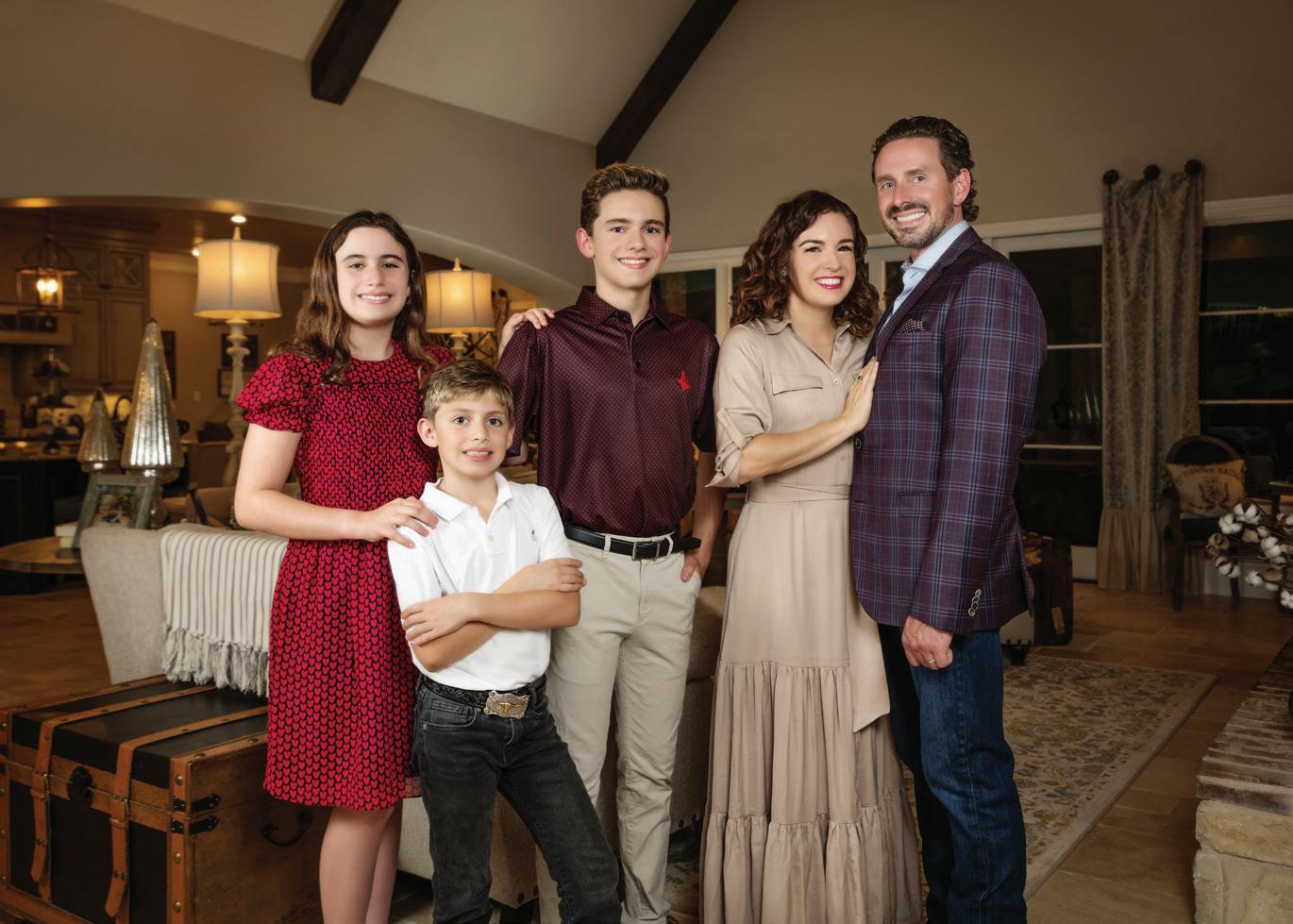










What a momentous occasion this week has been! In conjunction with Texas Tech University and its School of Music, we were ecstatic to host the residency of world-renowned composer John Corigliano.
Throughout the residency, panel discussions, world premiere compositions, mentoring sessions, and education concerts were presented to nurture the next generation of composers, performers, and audience members.
A thrilling rendition of John Corigliano’s Symphony No. 3 “Circus Maximus” will be performed by Texas Tech Symphonic Wind Ensemble.
“The Red Violin” Concerto, featuring our very own concertmaster, Annie Chalex Boyle, will tell the extraordinary journey of the rare violin.
Mr. Corigliano’s father was a long-time concertmaster of the New York Philharmonic. Naturally, the father and son were influenced by the American legend Leonard Bernstein. The Lubbock Symphony will perform his West Side Story Symphonic Dances. Please join us in shouting out “Mambo!”.
Thank you for your attendance at this historical event, and we are truly grateful for your most generous support of the Lubbock Symphony.
Sincerely,
David Cho Music Director



Thank you for joining us for “Red Romance on the West Side,” the conclusion of John Corigliano’s residency in Lubbock, as part of a collaboration between Lubbock Symphony and the Texas Tech University School of Music. It has been a fantastic experience for both groups. We are excited to wrap up this week by hosting Dr. McKoin and TTU’s Symphonic Wind Ensemble as they join our concert tonight.
We would like to extend our utmost gratitude to Hill & Ioppolo Oral & Dental Implant Surgery of Lubbock for sponsoring tonight’s concert. Their partnership has continued to grow for the past several years, and for that, we are very thankful. To all of our sponsors, past and present, we thank you!
Our next concert of the season, “Madame Butterfly,” on November 11th, will feature an incredible cast with the Lubbock Symphony to present a semistaged production of the opera. While the production is in Italian, an English translation will be available.
Galen Wixson President and CEO Lubbock Symphony Orchestra
Lubbock Symphony Orchestra

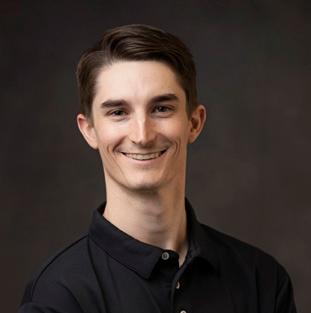



 Founding Conductor of the Lubbock Symphony Orchestra, 1946-1987
Founding Conductor of the Lubbock Symphony Orchestra, 1946-1987









Born in Seoul, Korea, David immigrated to the United States in 1985. David received a variety of music lessons during his childhood in Palos Verdes, California, before focusing his energy exclusively on the piano. He later attended Oberlin College and Conservatory, where he received his Bachelor of Music in piano performance. In 1996, David won the E. Nakamichi Concerto Competition at the Aspen Music Festival and was awarded the Arthur Dann Prize at the Oberlin Conservatory.
In 1999, while acquiring his Master of Music in piano performance at the Peabody Institute at Johns Hopkins University, David was invited by Robert Spano and Seiji Ozawa to attend the prestigious Tanglewood Music Center as a Merrill Lynch Conducting Fellow. David was then invited by Larry Rachleff to study at Rice University, where he served as guest conductor for the Shepherd School Orchestras while acquiring his Master of Music in instrumental conducting. David was subsequently invited by the Vienna Philharmonic to serve as an assistant conductor. As the recipient of the Karajan Fellowship, David has enjoyed residencies at the annual Salzburg Festival in Austria. In 2003, David was invited by Leonard Slatkin to participate in the National Conducting Institute, during which time he made his début with the National Symphony Orchestra at the John F. Kennedy Center for the Performing Arts.
During the 2003-2004 season, David was selected to spend a year as the conducting fellow of the New World Symphony under the mentorship of Michael Tilson Thomas. While on tour with the New World Symphony in New York City, David made his Carnegie Hall début conducting works by Copland and Tchaikovsky. During the orchestra’s Rome tour, David made his début at the Academy of Santa Cecilia, conducting works by Luciano Berio and John Adams. David was then invited by his mentor, Larry Rachleff, to serve as the resident conductor of the San Antonio Symphony Orchestra from 2004-2006. During the 20062007 season, David held the Bruno Walter resident conductor chair with the ensemble.
During his tenure as the associate conductor of Utah Symphony | Utah Opera (2006-2011), David won first prize at the Eduardo Mata International Conducting Competition in Mexico City, which resulted in numerous conducting engagements in Europe, Asia, and South America. He has conducted the symphonies of Seattle, Houston, Austin, Memphis, Fort Wayne, Baton Rouge, and Shreveport. He has collaborated with such guests artist as Yo-Yo Ma, Renée Fleming, Joshua Bell, Frederica von Stade, Sarah Chang, Daniel Müller-Schott, Jennifer Koh, Leila Josefowicz, Jennifer Frautschi and Alexander Kobrin. During previous summers, David made appearances at the Aspen Music Festival and the Grand Teton Music Festival.
After heralded guest appearances with the Lubbock Symphony Orchestra in 2007 and 2009, David was appointed as the orchestra’s seventh music director in 2011. He began his tenure with the LSO in the 2012-2013 season and has been actively involved in community engagements.







The American John Corigliano continues to add to one of the richest, most unusual, and most widely celebrated bodies of work any composer has created over the last forty years. Corigliano’s numerous scores—including three symphonies and eight concerti among over one hundred chamber, vocal, choral, and orchestral works—have been performed and recorded by many of the most prominent orchestras, soloists, and chamber musicians in the world. Recent scores include Conjurer (2008), for percussion and string orchestra, commissioned for and introduced by Dame Evelyn Glennie; Concerto for Violin and Orchestra: The Red Violin (2005), developed from the themes of the score to the François Girard’s film of the same name, which won Corigliano the Oscar in 1999; Mr. Tambourine Man: Seven Poems of Bob Dylan (2000) for orchestra and amplified soprano, the recording which won the Grammy for Best Contemporary Composition in 2008; Symphony No. 3: Circus Maximus (2004), scored simultaneously for wind orchestra and a multitude of wind ensembles; and Symphony No. 2 (2001: Pulitzer Prize in Music.) Other important scores include String Quartet (1995: Grammy Award, Best Contemporary Composition); Symphony No. 1 (1991: Grawemeyer and Grammy Awards); the opera The Ghosts of Versailles (Metropolitan Opera commission, 1991, International Classical Music Award 1992); and the Clarinet Concerto (1977.)
One of the few living composers to have a string quartet named for him, Corigliano serves on the composition faculty at the Juilliard School of Music and holds the position of Distinguished Professor of Music at Lehman College, City University of New York, which has established a scholarship in his name; for the past fourteen years he and his partner, the composer-librettist Mark Adamo, have divided their time between Manhattan and Kent Cliffs, New York.
More information is available at www.johncorigliano.com.
You love Bach in black tie, but have you tried Sibelus in slippers? Beethoven à la bubble bath? Dvořák with your favorite doggo?

Locally-curated classical content is now available via voice command— wherever you are. Just tell your smart device to play KTTZ-HD2, and start that soaker!

Internationally recognized violinist Annie Chalex Boyle has had a wide-ranging career as a chamber musician, soloist, orchestral player, and teacher. Her playing has been hailed by critics as “brilliant” (Kalamazoo Gazette), “eloquent and poignant” (The San Antonio Express Journal), and “has a commanding musical impersonation… in Ives’ Second String Quartet” (Los Angeles Times). Equally comfortable with classical and contemporary works, Ms. Chalex Boyle has performed numerous new works composed for her as well as commissioned for the Harrington String Quartet. Ms. Chalex Boyle has won prizes at the Seventeen Magazine/General Motors National Competition and the Irving M. Klein International String Competition and was a finalist in the Yehudi Menuhin International Violin Competition and the Stulberg International String Competition. She was also the Grand Prize Winner of the Junior Division of the Fischoff Chamber Music Competition.

As a soloist, Ms. Chalex Boyle has performed recitals and been concerto soloist throughout North and South America. As first violinist of the Harrington String Quartet, the group toured extensively nationally and internationally, including a performance at Carnegie’s Weill Hall and on the roster of Mid-America Arts Alliance. The Quartet performed with guest artists including David Shifrin, Robert Levin, James Dunham, and Pepe Romero. She has been featured in two PBS television documentaries, heard frequently on NPR’s “Performance Today”, and has recorded on the Albany, Hänssler Classics, and Summit labels. An advocate of new music, she has worked with many composers including Oliver Knussen, Elliot Carter, and Stephen Hartke. Before moving to Lubbock, she taught violin at the Interlochen Arts Academy in Michigan, played with the Los Angeles Chamber Orchestra, and coached chamber music the Chicago Symphony Youth Orchestra.
Born in Illinois, Ms. Chalex Boyle began violin in the Music for Youth Suzuki Program and continued her work with Almita and Roland Vamos. She also attended the University of Southern California studying with Robert Lipsett and worked with Robert Mann and Felix Galimir at The Juilliard School. She is currently an Associate Professor of Violin at Texas Tech University, and is Concertmaster of the Lubbock Symphony and Lubbock Chamber Orchestra. Ms. Chalex Boyle performs on a 1652 Andrea Guarneri.
The CH Foundation Endowed Conductor’s Podium
Concertmaster
Jones-Saathoff Family Endowed Chair
Linda Lin
Associate Concertmaster
Diekemper Family Foundation Endowed Chair
Maja Maklakiewicz
Abi Rhoades
Lazaro Gonzalez Grace Marín Aguilar Isaias Ferreira
Rodrigo Esteban Cabrera
Judy Woody Adan Flores
Kea Beasley
Lynn Ledbetter
Principal
Justice Phil and Carla Johnson Endowed Chair Saikat Karmakar
Assistant Principal Brennan Lowrey
Martha Perez
James Ellis
Shirley Wigley
Carroll Jane Goodyear
Texas Tech University School of Music Endowed Performer
Cassidy Forehand Nilschmid Jimenez
Daniel Xue
Shawn Earthman
Principal
Mary M. Epps and Ralph E. Wallingford Endowed Chair
Gwendolyn Matias-Ryan Sharon Mirll Bruno Silva
Ryellen Joaquim Marian Herrero Joshua Allen Brian Gum
Michael Newton
Principal
Mary Francis Carter Endowed Chair Danny Mar Alejos Anaya Madeline Garcia Neemias Santos Daria Mi´skiewicz Yuhan Shi Kim Suyeon
Mark Morton
Principal
Eugene and Covar Dabezies Endowed Chair Hannah Macgillivray Boyce Wyrick
Griff Miller Stuart Anderson Nodier Garcia
Flute Kim Hudson
Principal
Crew of Columbia, STS-107 Endowed Chair Linda Jenkins

Principal Lubbock Symphony Guild Endowed Chair
Alex Hyde
Susetta Rockett
Janeen Drew Holmes Endowed Chair
David Shea
Principal
Sara Hoffman
Hsiao-Ju Chen
Bass Clarinet
Mia Zamora
David Dees
Vince Ocampo
Principal Nancy and Tom Neal Endowed Chair
Ian Resurreccion
David Hiester
Horn
John Stacy
Principal Anthony and Helen Brittin Endowed Chair
David Lewis
William Wallace
Jack Mellinger
Matthew Fenton
Gary Hudson
Principal Stacey and Robert Kollman Family Endowed Chair
Joseph Vandiver Zachary Worley
Isaac Swanson
Trombone
Jim Decker Principal Bruce Keeling
bass Trombone Darin Cash
Tuba Kevin Wass
Principal Diekemper Family Foundation Endowed Chair
Lisa Rogers
Principal Lubbock Symphony Guild Endowed Chair percussion Christopher Mehrafshan PrincipalLisa Rogers/Alan Shinn Endowed Chair
Michael Mixtacki
John Frederick Taylor Burks Mariah Taller Harp
Rachel Mazzucco
Principal Rachel Jean Armstrong Thomas Endowed Chair
Principal Edward R. and Jo Anne M. Smith Endowed Chair






In the days preceding this evening’s performance, the
Tech
residency
School of
in collaboration with the Lubbock Symphony,
a residency with John Corigliano.
to
from the entire university and the residents of Lubbock.
was made possible
from the Maegene Nelson Visiting


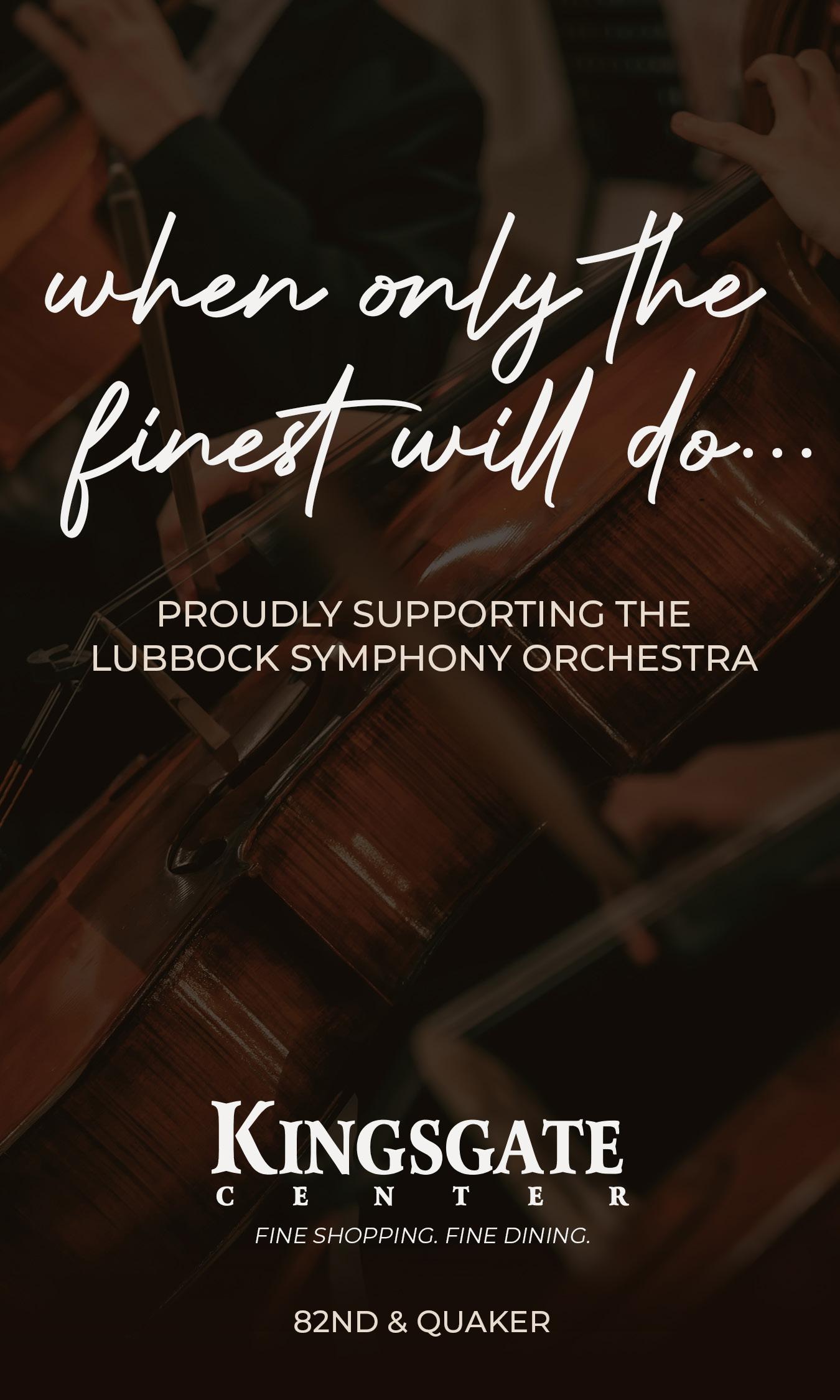

Serving on the faculty of the Texas Tech University School of Music since 2006, Dr. Sarah McKoin is the Director of Bands, Professor of Music, and Chair of the Conducting Area. In addition to her responsibilities with the Symphonic Wind Ensemble, Dr. McKoin leads the graduate conducting program, teaches classes in pedagogy and wind literature while overseeing the university band program. Under Dr. McKoin’s direction, the Symphonic Wind Ensemble has been featured at the prestigious Midwest Clinic, multiple Texas Music Educators Association Conferences, the North American Saxophone Alliance, the College Music Society conference and several CBDNA conferences.
Her interest in contemporary art music has supported numerous residencies, repertoire consortia collaborations and world premiere performances. In Spring 2023, the world premiere of Viet Cuong’s composition written for TTU and the Aruna Saxophone Quartet will be held in March. Further consortia premieres of John Mackey’s Divine Mischief with Julian Bliss (clarinet) and Jennifer Jolley’s new work with Seraph Brass will take place in February and April. Dr. McKoin’s ensemble has received critical acclaim for their recordings featuring world premiere recordings of the wind music of Chen Yi and Narong Prangcharoen and a premiere recording of Israeli American composer Avner Dorman’s wind music is currently in production.
Highly active and widely sought as a guest conductor and clinician, Dr. McKoin has traveled extensively throughout the United States and abroad. She has worked in China, Taiwan, Thailand, Canada, and Israel where she served as producer for the world premiere recording of Roberto Sierra’s Fantasia Correliana with the Castellani-Andriaccio guitar duo and Israeli Chamber Orchestra. Additionally, McKoin has served on the conducting faculty at the Brevard Music Center in Brevard, North Carolina and most recently the Interlochen Arts Academy. She remains passionately committed to music education and has conducted numerous All-State ensembles throughout the country as well as being a regional and local music advocate.
Dr. McKoin has served on the faculties of the University of Missouri-Kansas City Conservatory of Music, the State University of New York at Buffalo and SUNY Fredonia. She has been President of the Southwest Division of the College Band Director’s National Association and President of the Big 12 Band Director’s Association. Dr. McKoin is a member of the American Bandmasters Association, Texas Music Educators Association, Texas Bandmasters Association, Phi Beta Mu, Pi Kappa Lambda, and serves as faculty sponsor of the service fraternities Kappa Psi and Tau Beta Sigma.
Flute
Kaylee Smith
Ava Monico
Maya McBrayer Samuel Orta Lillian Peterson
OBOE Jordan Hastings Wesley Barton Angeli Nicolas Ashley Thomas
BASSOON
Ian Resurrección Austin Perry Taylor Gambill Adolfo Mendoza Clarinet Hsiao-Ju Chen Sara Hoffman Kayla Abel Eric Boatman Natalie Odom Josue Molina Jordan Parks Vicente Pedroza Reilly Ledbetter* Megan Munoz* Alyssa Frescas* Amy Gilmore*
BASS Clarinet
Ryan Rodarte Mia Zamora* Saxophone Ryan Montemayor Blaine Majors
Logan Parker Natalie Wilson
trumpet
Matt Soares Tyler Castellanos Georgia Hageman Josh Robbins Ryan Drone Katy Baker Trey Pile Mikayla Sweet Jonathon Allgeyer* Zach Worley* Nico Bononcini* Josh Tolosa* Gavin Wallace* Jesse Chavez* Chloe Ellis* Jacob Garcia* Andrew Schofield*

John Stacy William Wallace James Ramirez Kaylee Webb Anna Kindschuh Jack Mellinger
TROMBONE Matthew Ramirez Julio Rivera Carlos Balandran Matthew Belcher Kaitin Werner Jackson Franco Euphonium Elijah Ramirez Kyle Boschen tuba Christian Bush Darion Jackson
percussion
Mariah Taller
Taylor Caspell
Zack Cavender
Peyton Forsythe
Jeff Harper

David Kath
Ryan Pound
Josh Watkins*
Javier Garza*
Nodier Garcia
piano
Nataliya Sukhina**
harp
Rachel Mazzucco**
Firearms technician
Sam Scheef*

*assisting personnel
**TTU faculty



The Circus Maximus in ancient Rome was the largest arena in the world, seating 300,000 spectators entertained by chariot races, hunts, and battles.
Corigliano draws parallels between the high decadence of Rome and our present time and says, “entertainment dominates our reality.”
The Red Violin’s composition earned composer John Corigliano an Academy Award for Best Original Score.

“The Red Violin” concerto in the film features virtuoso Joshua Bell on violin.
“West Side Story” is a modern rendition of “Romeo and Juliet,” swapping the Montague and Capulet families for the rival gangs of the Jets and Sharks.
“West Side Story” not only boosted Leonard Bernstein’s reputation but also launched Stephen Sondheim into his spectacular 60-year career.
We hope you were able to participate in ClefNotes with John Clare prior to the concert this evening!
The first Native American to lead an all-classical radio station, John Nasukaluk Clare is comfortable behind a microphone, streaming video or playing violin. He is currently the Classical Music Director at WGUC in Cincinnati, and is the weekday morning drive host on SiriusXM’s Symphony Hall. In 2005, he earned the Deems Taylor Award from ASCAP for radio broadcasting, citing his work on 20/20 Hearing. An avid chamber music lover, Clare founded the Las Vegas Chamber Music Society in 2004.
Join us before Madame Butterfly for another beginner-friendly discussion with opera expert and LSO Board member Dr. Neil Kurtzman.
 Joshua Bell performed with Lubbock Symphony in 2016!
Joshua Bell performed with Lubbock Symphony in 2016!
Symphony No. 3
Circus Maximus
I. Introitus II. Screen / Siren
Channel Surfing IV. Night Music I
Night Music II
Circus Maximus
Prayer VIII. Coda: Veritas
The CH Foundation Endowed Conductor's Podium
Corigliano (1938-)
Please be aware as part of the musical performance this evening, there will be a loud gunshot heard. Hearing protection is provided with our compliments. Enjoy the performance.
Texas Tech University Symphonic Wind Ensemble Dr. Sarah McKoin, conductor
The Red Violin Concerto
I. Chaconne II. Pianissimo Scherzo III. Andante Flautando
Accelerando Finale
Annie Chalex Boyle, violin
Bernstein (1918-1990)
Mr. Corigliano’s residency was made possible with generous support from the Maegene Nelson Visiting Scholar Endowment at Texas Tech University.
Corigliano (1938-)




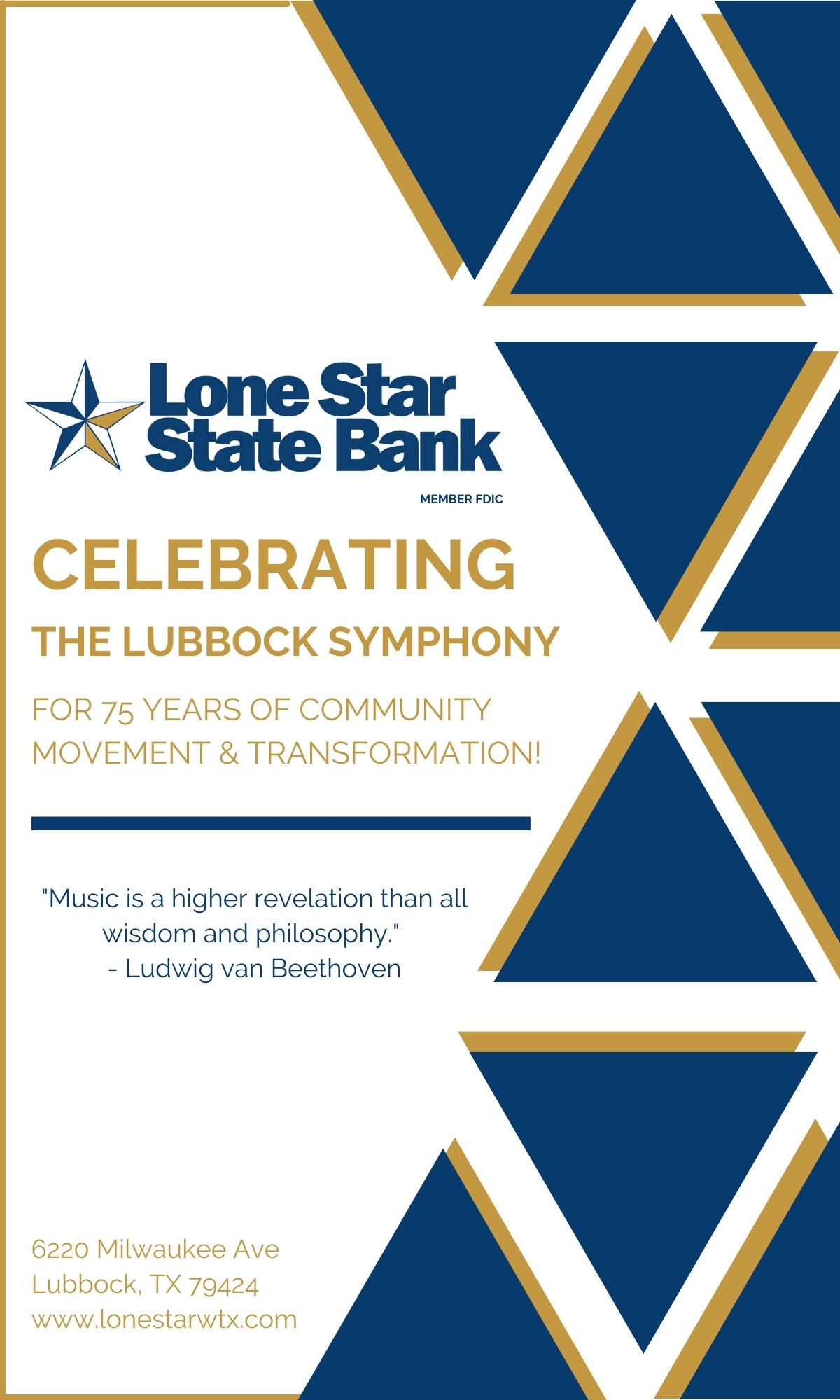
John Corigliano’s distinguished career has earned him numerous awards, including the Grawemeyer Award for Music Composition, five Grammy Awards, the Pulitzer Prize for Music (for his Symphony No. 2), and an Oscar for Best Original Score (for The Red Violin). His works span the range of piano music, chamber music, orchestra and opera, and have been performed by major soloists, orchestras, and opera companies all over the world.
John Corigliano has written this about Circus Maximus:
For the past three decades I have started the compositional process by building a shape, or architecture, before coming up with any musical material. In this case, the shape was influenced by a desire to write a piece in which the entire work is conceived spatially. But I started simply wondering what dramatic premise would justify the encirclement of the audience by musicians, so that they were in the center of an arena. This started my imagination going, and quite suddenly a title appeared in my mind: Circus Maximus.
The Latin words, understandable in English, convey an energy and power by themselves.
But the Circus Maximus of ancient Rome was a real place -the largest arena in the world. 300,000 spectators were entertained by chariot races, hunts, and battles. The Roman need for grander and wilder amusement grew as its empire declined.
The parallels between the high decadence of Rome and our present time are obvious. Entertainment dominates our reality, and ever-more-extreme “reality” shows dominate our entertainment. Many of us have become as bemused by the violence and humiliation that flood the 500-plus channels of our television screens as the mobs of imperial Rome, who considered the devouring of human beings by starving lions just another Sunday show.
The shape of my Circus Maximus was built both to embody and to comment on this massive and glamorous barbarity. It utilizes a large concert band and lasts approximately 35 minutes. The work is in eight sections that are played without pause:
I. Introitus — Trumpets and percussion surrounding the audience play fanfares, signaling the opening of the work. The full band enters with a primitive call from the clarinets. A short central section features the lowest winds and brass followed by the joining of the offstage and onstage ensemble playing together this time, and reaching the first climax of the work.
II. Screen/Siren — A saxophone quartet and string bass call from the 2nd tier boxes in seductive inflections. Other instruments scattered around the hall (clarinet, piccolo, horns, trumpet) echo the calls, which are suddenly interrupted by…








III. Channel Surfing — Our need for constant change echoes the desires of the ancient mob, only now we can access it all by pressing a button. Music in this section is constantly interrupted by other music and comes from all sections of the hall.
IV. Night Music I — Tranquility in nature. Away from cities, forest sounds suspend time. Animals call to each other.
V. Night Music II — The hyper night-music of the cities pulse with hidden energy and sudden flashes. Sirens and distant battles onstage build the tension to…
VI. Circus Maximus — The peak of the work incorporates all the other movements and is a carnival of sonoric activity. A band marching down the aisles counterpoints the onstage performers and the surrounding fanfares. Exuberant voices merge into chaos and a frenzy of overstatement.
VII. Prayer — In answer to this, a long-lined serene melody is set against a set of plagal (IV-I) cadences that circle through all the keys. The rising line grows in intensity against the constantly changing harmonies as the chords overlap from stage to surround trumpets and back.
VIII. Coda: Veritas — Music from the Introitus enters almost inaudibly, but grows in intensity until it dominates the “prayer” music, and the surrounding trumpet calls reach an even higher peak. A gunshot ends the work.
- Material for these notes courtesy of johncorigliano.com
François Girard’s 1997 film The Red Violin, featuring Samuel L. Jackson, Greta Scacchi, and Sylvia Chang, follows the history of a violin created in 1681 by the fictional luthier Nicolò Bussotti, grieving in the aftermath of the death of his young wife in childbirth. The film is presented as a series of vignettes as it passes through the hands of various owners and performers in 18th-century Austria, 19th-century England, and 1960s Shanghai, before winding up on the auction block in present-day Montreal, where it is examined by the mercurial violin expert Charles Morritz. Each scene is the manifestation of a series of tarot cards forecast for Bussotti’s young wife while she is pregnant.
The film opened to critical and audience acclaim at the Venice Film Festival in September 1998, and received similar plaudits at film festivals in Toronto, London, and Tokyo. It received wider theatrical release in Canada, London, and the United States. The Red Violin earned composer John Corigliano an Academy Award for Best Original Score and garnered many nominations and awards at the Golden Globes, Genie Awards, Jutra Awards, and the Chicago Film Critics Association.
My third film score (“The Red Violin”) gave me an opportunity to visit my own past, for my father, John Corigliano (I was a “jr.”) was a great solo violinist and the concertmaster of the New York Philharmonic for more than a quarter of a century. My childhood years were punctuated by snatches of the great concertos being practiced by my father, as well as scales and technical exercises he used to keep in shape. Every year, he played a concerto with the Philharmonic (as well as in other venues), and I vividly remember the solo preparation, violin and piano rehearsals, orchestral rehearsals and the final tension-filled concerts (where I would sit backstage in the Carnegie Hall green room, listening to my father over a small speaker breathlessly playing the work in my head and listening to make sure everything came out all right.)
It is no wonder that the concerto form, and the violin concerto in particular, has a deep place in my heart. I have written a half-dozen concerti, but this is my first one for my first love, the violin. It is an “in the great tradition” kind of concerto, because I wrote it in an attempt to write the piece my father would love to play. Because he inspired it, it is dedicated to his memory.
The event that galvanized my energies into composing this concerto was, of course, the scoring of the film “The Red Violin”, directed by François Girard, and featuring the sublime young virtuoso, Joshua Bell as the voice of the violin. Josh’s playing resembles that of my father, he is an artist in the grand tradition. No cold, clinical dissection of a work would flow from his bow.
The story of “The Red Violin” is perfect for a lover of the repertoire and the instrument. It spans three centuries in the life of a magnificent but haunted violin in its travels through time and space.
A story this episodic needed to be tied together with a single musical idea. For this purpose I used the Baroque device of a chaconne: a repeated pattern of chords upon which the music is built.

Against the chaconne chords I juxtaposed Anna’s theme, a lyrical yet intense melody representing the violin builder’s doomed wife. Then, from those elements, I wove a series of virtuosic etudes for the solo violin, which followed the instrument from country to county, century to century. I composed these elements before the actual filming, because the actors needed to mime to a recording of these works since their hand motions playing the violin would have to synchronize with the music.
Then, during the summer of 1997 while the film was being shot all over the world, I remained at home and composed the 17-minute “The Red Violin: Chaconne for Violin and Orchestra,” a concert work based on the existing elements, and given its world premiere in San Francisco with Josh and Robert Spano in the fall of that year. After that, I had only a few weeks to provide the underscoring (the music that is not seen on camera) for the recording dates around Christmas 1997 in London.
The violin and orchestra “Chaconne” then became a concert work, performed by Josh (and others) around the world. But, as a moderate length singlemovement work, it fell into a category of works that must be paired with other works to complete a soloist’s guest appearance with an orchestra. Great works like Ravel’s “Tzigane” or the Chausson “Poème”, or Beethoven’s Romances, have the same problems.
More importantly for me, the chaconne had given me the opportunity to strip away any inhibitions and write a passionate and romantic essay that I probably would not have written had it not been accompanying a film. It bypassed my “censor button” that made it necessary for me to not only write a piece, but “rediscover” the form in the piece (like my three woodwind concerti). I liked what I heard, and it came very naturally.
So, like Schumann, I decided to add some movements to the existing chaconne (he to his piano and orchestra fantasy) and make it a full-length concerto. In my case, that meant composing another three movements to balance the large first one.
The other movements are connected to the first (and the film) in different ways: the first is a fleet “Pianissimo Scherzo” in which the dynamics are soft, but the action wild and colorful. I wanted to break the romantic mood of the first movement with sonoric and timbral effects that create a sparkling, effervescent energy. A central trio is distantly related to Anna’s theme, but here heard in knuckle-breaking double harmonics by the soloist – high, ethereal, and dance like.
The third movement (Andante flautando) starts with an intense recitativo that is more closely related to the film’s main theme, but soon gives way to a gentle, rocking melody played by the soloist in an unusual manner that results in his sound changing to that of a flute (“flautando”). He and the alto flute pair up as a complementary duo in this theme.
The final movement (Accelerando Finale), as the title suggests, is a rollicking race in which the opposed forces of soloist and orchestra vie with each other. They each accelerate at different times and speeds, providing a virtuoso climate befitting a last movement. Some other unusual techniques are used here: the violin (and orchestral strings) are asked to press so hard on their strings that there is no pitch at all, just a crunch. This percussive and unusual sound provides energy, especially during the races. A major theme from the film that was not used in the concert chaconne was that given to Moritz, the contemporary violin expert who discovers the mystery of the Red Violin. It is a sadly romantic theme, and becomes the lyrical counterpoint to the high spirits of this final movement. Near the end of the work, the original chaconne from the first movement comes back to complete the journey of this violin concerto.
- Material for these notes courtesy of johncorigliano.com
West Side Story was neither Leonard Bernstein’s first Broadway musical nor his first success (that was On the Town of 1944), but it was his first truly spectacular triumph on Broadway, and it proved to be his last. His subsequent contributions to the Great White Way, 1600 Pennsylvania Avenue from 1976, and The Madwoman of Central Park West from 1979 (for which Bernstein was one of several musical contributors), closed almost as soon as they opened, and both gathered reviews ranging in tone from apathetic to scathing. Though Bernstein distinguished himself in almost every aspect of American musical life, from conducting to teaching to composing, in his output for that most American of musical genres, he was for the longest time a “one-hit wonder.” Only with the revival and reevaluation of works like Candide, Peter Pan, and Wonderful Town have we been able to understand both the depth and originality of Bernstein’s music for Broadway.
In 1957, Bernstein was still smarting from the lukewarm audience and critical response to v, his musical based on Voltaire’s novel, written in collaboration with the songwriting/comedy duo of Betty Comden and Adolph Green. In searching for a new direction for their work, Bernstein and his collaborator, playwright Arthur Laurents, had begun work on a story that would transport Shakespeare’s Romeo and Juliet to modern New York, originally with the central conflict between Jews and Catholics. But when Bernstein came across an article in the Los Angeles Times describing the gang battles between Mexican and white teenagers, he immediately knew he had found the perfect scenario for his adaptation of Shakespeare, with the warring Montague and Capulet families transformed into the rival gangs of the white Jets and the Puerto Rican Sharks.

In transferring Shakespeare’s belligerent Verona to Manhattan’s Upper West Side, Bernstein and Laurents teamed up with two important collaborators: director, dancer, and choreographer Jerome Robbins, whose spectacular dance sequences bolstered the popularity of the show and its subsequent movie, and a very young Stephen Sondheim, whose lyrics for West Side Story launched his spectacular sixty-year career. The first production ran for 772 performances on Broadway and won two of the six Tony awards for which it was nominated. The musical soon became an international hit, spawning numerous productions around the world and two film versions in 1961 (directed by Robert Wise) and 2021 (directed by Steven Spielberg).
In 1960, Bernstein created the Symphonic Dances in tandem with the plans for the 1961 film. They were first performed by the New York Philharmonic under the direction of Lukas Foss at Carnegie Hall in February of 1961 and have remained a concert staple ever since. One of the most remarkable features of the work is that it is more than just a potpourri of the show’s “greatest hits,” but a truly symphonic reworking of the themes of the musical. While the events of the drama are easily identifiable in the music, they are not presented according to their appearance in the show, but as a musical structure with its
own structure and logic.
Jack Gottlieb, Bernstein’s longtime friend and assistant, provided this concise synopsis of the Symphonic Dances:
Prologue: The growing rivalry between two teenage gangs, the Jets and Sharks.
“Somewhere”: In a visionary dance sequence, the two gangs are united in friendship.
Scherzo: In the same dream, they break through the city walls, and suddenly find themselves in a world of space, air and sun.
Mambo: Reality again; competitive dance between the gangs.
Cha-Cha: The star-crossed lovers see each other for the first time and dance together.

Meeting Scene: Music accompanies their first spoken words.
“Cool” Fugue: An elaborate dance sequence in which the Jets practice controlling their hostility.
Rumble: Climactic gang battle during which the two gang leaders are killed.
Finale: Love music developing into a processional, which recalls, in tragic reality, the vision of “Somewhere.”


The Lubbock Symphony Orchestra would like to express gratitude to and





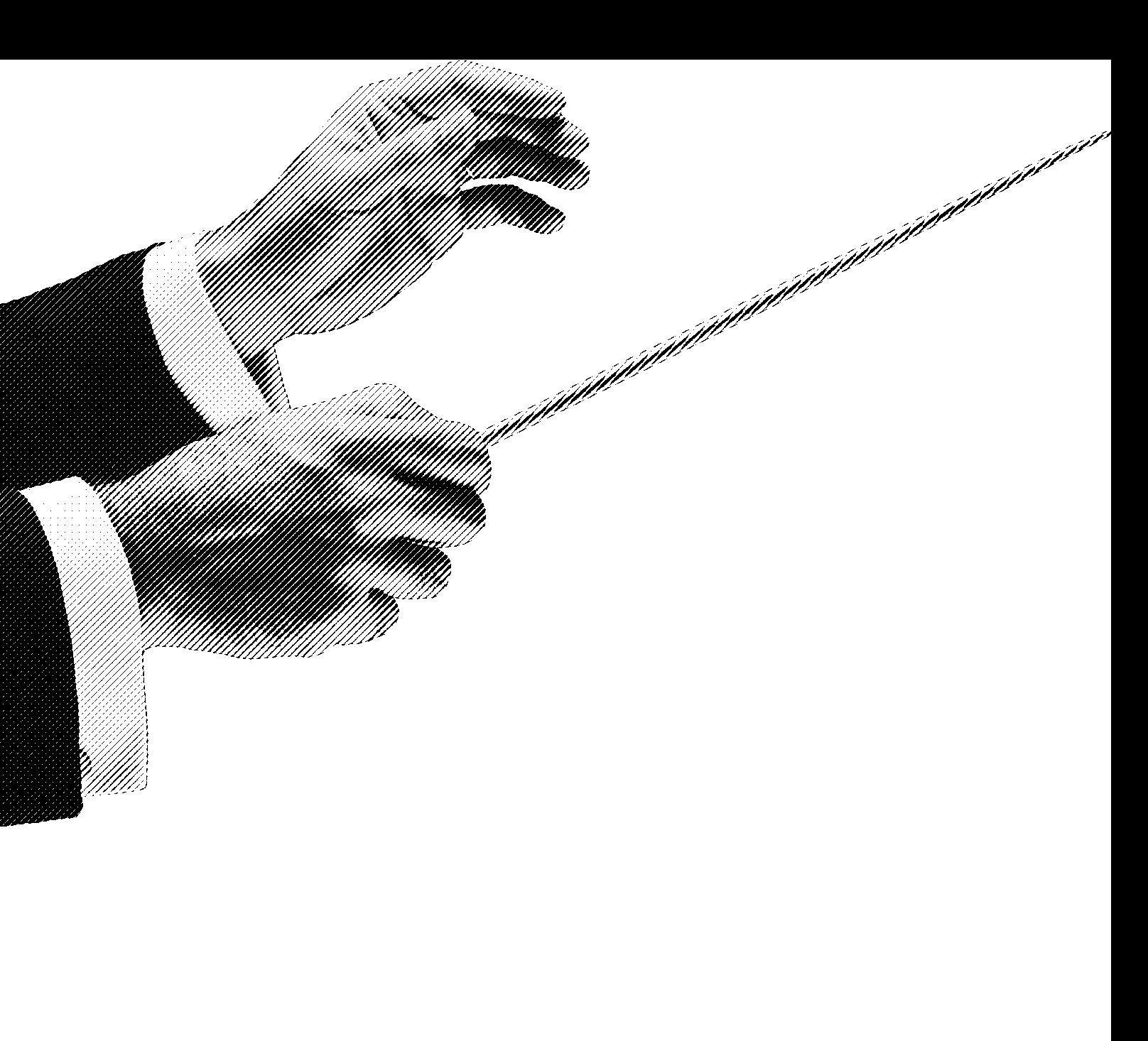





The Lubbock Symphony Orchestra appreciates the generosity of the following individuals who have given to the Annual Fund between March 27, 2021 and September 27, 2022.
($15,000+)
Herb Armstrong and Evan Sabino
Neil and Sandra Kurtzman
Don and Jan Ledbetter
Lee and Beth Pennington
($7,500 – $14,999)
Dolle Barker
Jill and Gilbert Berdine
RADM and Mrs. Stephen Chadwick
David Cho
Harold and Deena Evensky
Hill & Ioppolo Oral & Dental Implant
Surgery of Lubbock
Joe and Ann Horkey
Adrian and Leslie Huckabee
Craig and Ann McDonald
Jo Anne M. Smith
Toni E. Wallingford
($5,000 – $7,499)
Joan Baker
Norton and Jane Baker
Curtis Griffith
Thivakorn and Betsy Kasemsri
Don and Susan Maddox Lola and Thomas Windisch
($3,500 – $4,999)
Alan and Sandy Henry
CONCERTMASTER’S CIRCLE
($1,500 – $3,499)
Stephen and Maria Balch
Mark and Betsy Bass
Deborah Conn
Patty D’Alise
Michael and Mary Epps
Elias and Eleonora Ghandour
Brad and Birgit Green
Elgin and Erin Gregg
Tommy and Lavelle Hawkins
Mark and Heather Hocker
Sidney Hopper
John and Cherie Hunter
Robert and Stacey Kollman
Larry and Lucy Landusky
Kurt and Paula Loveless
Rick and Sharon Martin
Drs. Barent and Audrey McCool
Mallory Miller
Mary Moran
Judy and Gary Poffenbarger
Tim and Mary Jane Sampson
Kevin and Carrie Sedberry
Nancy Sharp
Jill and Fred Stangl
James and Shanna St. Clair
Dr. and Mrs. Davor Vugrin
Dr. Charles and Patricia Wheeler
Harry and Cindy Zimmerman
($1,000 – $1,499)
Pieter Bergstein
Ray and Cathy Box
Anthony Brittin
Terri and Mike Byrne
Stephen and Kathy Faulk Amy Grisham
Dennis and Ellen Harp Ross and Kelli Hilburn
Alena Ilyushyna
Carol King
Ms. Mary McCrary
Curtis and Brenda Parrish
Melissa and Tim Pridmore Keli Ramsey
Mrs. Dona Richardson John and Katie Salter



Walter S. and Kathy Smith
Steve and Robin Talbert
Noelle Zavala
($500 - $999)
Aubrey and Ruth Ann Bridges
Matthew and Krista Bumstead
Richard and Reyhan Crider
Bob and Sandy Crosier
Sara and Tim Dodd
Joan and Joe Dominey
Michael and Linda Edwards
Giles and Lynn Forbess
Bess Haley
Karen and Mark Havins
Janeen Drew Holmes
Don and Lynnita Hufstedler
Morris and Janice Knox
Lucy Lanotte
Jim and Patti Lupton
Laura and Monte Monroe
Norman and Bettie Orr
Tom and Sarah Parsons
Judy Rowdon
Randy Kinnison and Jane Rowley
Sam and Jana Scheef
George and Judy Sell
Melanie Sorsby
Tom Tenner
Gay Word
Debby and Dennis Zuehlke
($275 - $499)
Wayne and Jane Allison
Kathryn Button
Bobbe Crawford
P.D. and Gayle Cunningham
Gary and Melanie Davis
Jim and Patti Douglass
Don and Anne Garnett
Don Graf
Claudia and Mark Griffin
Marion Hagler
William and Janis Hartwell
Robb Chapman and Dr. Sarah Hosford
Honorable and Mrs. Phil Johnson
John Jones
Wendell Leatherwood
Wyatt and Claire Leavell
Barry Maurer
Ms. Sara McLarty Linda and George McMahan Trois Payne
Davis and Janet Price Mike and Melanie Ragain Kelly Robinson Karen Savage Lynn Schmidt Scott and Vickie Shurmur Drs. Robert Duncan and Annette Sobel Sandra Stratton
Dr. Jim and Mrs. Shannon Taliaferro Betty Wall
Paul Walter Jenny and Edson Way Jimmy and Susan Wedel Ann Williams Dr. and Mrs. Hugh Wilson
($125 - $274)
David and Ann Abbott Gene H. Adams
Rob and Pam Allison
Alexis Anderson John Anthony James Arnold Joe Arredondo
Dr. and Mrs. Michael Balch
Ian and Shelley Barba Nancy Barr Sherry Barsch
Aurora and J. Alton Bauerle Dr. and Mrs. Eric Blackwell Pam Blassingame Edward Broome
Larry and Charlotte Burt Manon and Neill Carter Mary Cato
Beverly Chilton
Barry Cohen
Robin P. Conkwright Lou Conner
Thomas Copple Ronald and Alice Cox



Stephen Crowell
Sally Cummings
Carol Daugherty
Glenn Davis
David and Claudia Dea
Steve Duran
Peggy Dyess
Dr. Hua Chen, Dr. Grace Sun and Family Muff Fregia
Jim and Kathy Gilbreath Yvonne Gilinsky
Keith A. Gray Elizabeth Grigsby
Mary Hastert
Mr. Larry Hess
Tom Hicks
Shyrle Hill
Ms. Bobbye Hrncirik Dr. Catherine Jai
Nelda Jett
Peggy Johnson
Robert Jokisch
Brian Kendall
Don Kidd
Pam King
Terry Hawkins and Doug Klepper
Fran Koch
Brad and Carol Ann Layton
Eric Lee
Gary and Judy Linker
Dale Little
Ben and Robin Lock Allan MacKenzie
Shannon McClendon
James McDonald
Joe and Linda McFerrin
Amanda Mead
Kishor Mehta Stephen and Cindi Moffett
Sally Murray
Jill Nelson
Ainsley Nelson
Tom and Gwen Nichols
Dr. Gregory and Betty Pepetone Ms. Patricia Perkins Velda and Glen Phipps Gerald Pipkin
Susan Pollard Madeline and Lisa Powell Carolanne and Jim Purtell
Jane Quade
Peter Reed Douglas and Kay Sanford
Melanie Slaton Jim and Donna Smith
Tony Smitherman Stephanie Starkovich Michelle and Jon Stephens
Steve Synck
Carl and Pam Tipton
Dick and Sue Tolley Kathleen Weed Barbara and Herman Wheatley Becca Williams
Gary Wood Tim and Amanda Wooten
Gay Word
Robert Worth Mary and John Zias John and Ann Zwiacher





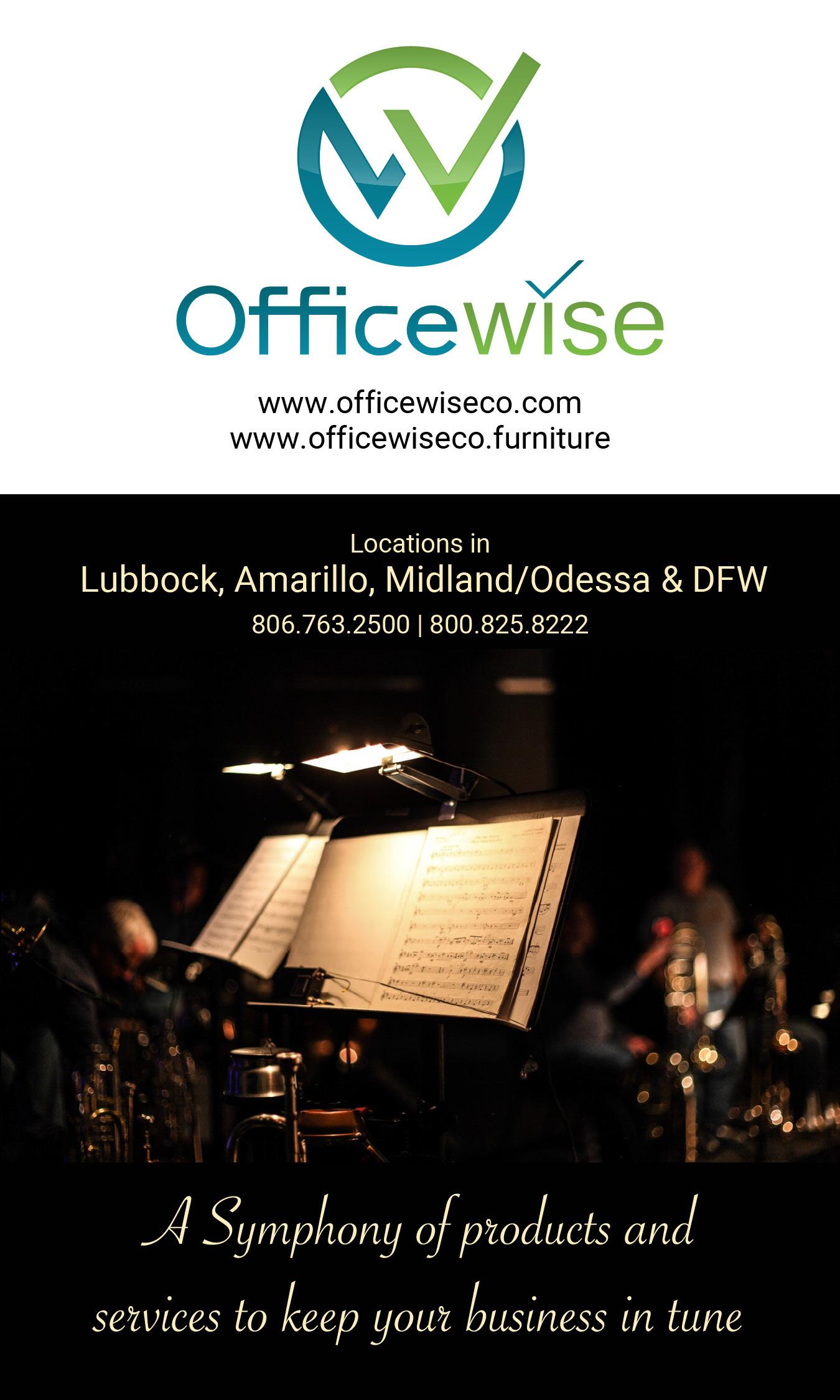


The Lubbock Symphony Orchestra respectfully acknowledges donations received during the 2021-2022 season in honor of the following:
Milton Bagwell
Blake Eddie Bingham
Dr. Eugene Dabezies
Lou Dunn Diekemper
Mary Epps
John Charles Fox III
Justin Andrew Fregia
H.E. Prince Bira Kasemsri
Shelley Furr Nelson
Ricky Rasco
Herb Tavenner
Annie Chalex Boyle
David Cho
Reyhan and Richard Crider
CJ Goodyear
The Harrod Family
Larry Landusky Galen Wixson
Toni Wallingford
If you would like to honor an individual or organization important to you, please send your tax-deductible donation to the Lubbock Symphony Orchestra, 601 Avenue K; Lubbock, TX 79401.
The CH Foundation Conductor’s Podium Endowment
Helen DeVitt Jones Endowment for Education
LSO Endowment for Musician Fees and Education
Shelley Hall Nelson Endowment for Musicians’ Salaries
Lubbock Symphony Opera Fund
Texas Tech University J.T. & Margaret Talkington College of Visual and Performing Arts, School of Music Performer Endowment
Jones-Saathoff Family Concertmaster Endowment
Diekemper Family Foundation Associate Concertmaster Endowment
Justice Phil and Carla Johnson Principal Second Violin Endowment Mary M. Epps and Ralph E. Wallingford Principal Viola Endowment
Mary Francis Carter Principal Cello Endowment
Eugene and Covar Dabezies Principal Bass Endowment
Drs. Audrey and Barry McCool Principal Flute Endowment, in memory of the Crew of Columbia, STS-107
Lubbock Symphony Guild Principal Oboe Endowment
Janeen Drew Holmes English Horn Endowment
Nancy and Tom Neal Principal Bassoon Endowment
Anthony and Helen Brittin Principal Horn Endowment Stacey and Robert Kollman Family Principal Trumpet Endowment
Diekemper Family Foundation Principal Tuba Endowment
Lubbock Symphony Guild Timpani Endowment Lisa Rogers/Alan Shinn Principal Percussion Endowment
Rachel Jean Armstrong Thomas Principal Harp Endowment Edward R. and Jo Anne M. Smith Principal Piano Endowment
 MICHAEL POSTAR’S
MICHAEL POSTAR’S
Jack M. Lewis
W.P. Clement
Charles E. Maedgen, Jr.
Roy Bass
Rex Webster
Marion Key W.R. Sewell
J.C. Reynold
James L. Quicksall, Jr.
Asher Thompson
Richard G. Richards Jack Kastman
Joe J. Moise
J. Harmon Jenkins George C. Miller Lonnie Langston John Witcomb O.W. English
Asher Thompson
Troy Myers
Arthur E. Gamble Charley Pope C.B. Carter
Robert E. Norris
Dean James Allen
Robert L. Stripling Charley Pope
John R. Kreiger
1946 1947 1948 1949 1950 1951 1952 1953 1954 1955-56 1957 1958 1959 1960 1961 1962 1963 1964 1965-68 1969 1970 1975-77 1978 1979 1980-81 1982 1983-84 1985
Edwin E. Merriman
Owen McWhorter, Jr.
Frank Newton
Frank Anderson
Kay Sanford
Paul Meyer
Robert L. Stripling
Jim Ratliff
Coffee Conner
Alan Henry William D. Armstrong
Susan Boling Curtis Griffith
DeWayne Pierce
Mike Cunningham Margaret Lutherer Chris Barnette
Catherine S. Porter
Ray Fargason Emily Ratcliff Brad Green
Peter G. Daia Kirk McLaughlin Harry Zimmerman Shannon Taliaferro Heather Hocker
1986 1987 1988 1989 1990-91 1991 1991-92 1992-93 1993-94 1995-96 1996-97 1997-98 1998-99 1999-00 2000-01 2001-02 2002-03 2003-05 2005-06 2006-08 2008-09 2009-11 2011-13 2013-15 2015-17 2017-19 2019-21
Bruckner
Cleaning
CRI
Diekemper Family
D. Williams & Co.
Drest by Scott Malouf
Evelyn M. Davies Foundation Evensky & Katz Wealth Management Farnsworth Family Orthodontics
First United Methodist Church Ghandour, Elias M.D., P.A.


HCHT
Helen Jones Foundation
Hill & Ioppolo Oral & Dental
Implant Surgery of Lubbock
JF Maddox Foundation
KCBD
Kingsgate Center (Graco Real Estate)
KTTZ 89.1 FM
Kuykendall Foundation
La Posta Botique
Lee Lewis
Llano Estacado Winery
Lone Star State Bank
Louise Hopkins Underwood Center for the Arts
Lubbock Abstract & Title Co
Lubbock Animal Care Clinic
Lubbock Arts Alliance
Lubbock Avalanche-Journal
Lubbock Chorale
Lubbock Community Theatre
Lubbock Entertainment
Performing Arts Association
Lubbock Moonlight Musicals
Lubbock Music Club
Lubbock Music Teachers Association
Lubbock National Bank
McPherson Cellars
Merrill Lynch
MS Doss Foundation
MWM Architects, Inc. Officewise
Orlando’s Italian Restaurant
Otto’s Granary Overhead Door Co. Overton Hotel Parkhill, Smith & Cooper PayPal
Pediatric Associates of Lubbock Pennington, Bass & Associates
Phi Beta Kappa Assn. of West Texas & Eastern New Mexico
Endowment to Benefit LSO Youth Outreach
Pinkie’s
Plains Capital Bank
Prosperity Bank
Rea Charitable Trust
Robinson & Hamblen General Dentistry
Sanders Funeral Home Service Title
Sharon Mirll, Exit Realty
Sherick Memorial Home
South Plains College
Southwest Snow Services Spec’s
St. Clair & Massey Orthodontics
Stewart Title
Tarpley Music
Texas Commission on the Arts
Texas Tech Alumni Association
Texas Tech Club
Texas Tech School of Music
Texas Tech University Presidential Lecture & Performance Series
Texas Women for the Arts
The CH Foundation
Tif Holmes Photography T L C E Charitable Fund
TTU eLearning
TTU Talkington College of Visual and Performing Arts
TTU Theatre and Dance
United Supermarkets
University Medical Center
Yellow House Dental & Implant Center
Youth Orchestras of Lubbock YWCA


Brian Willcutt
Chair
Toni E. Wallingford Chair Elect Katie Salter Treasurer
Terri Byrne Secretary Heather Hocker Immediate Past Chair
Steve Balch Dolle Barker
Dustin Baucom Gilbert Berdine Leen Borno
David Cho Patty D’Alise Michael Epps Stephen Faulk Elias Ghandour Gurdev Gill Matt Grannan Brad Green Erin Gregg Amy Grisham Sandy Henry Bobbye Hrncirik
Leslie Huckabee Alena Ilyushyna Tiva Kasemsri Neil Kurtzman
Melissa Lewis Paula Loveless
Amanda Mead Barry McCool Mallory Miller
Mary Moran
Brenda Parrish Judy Poffenbarger Melissa Pridmore
Peter Reed
Abi Rhoades
Tim Sampson Phil Sizer
Andrew Stetson Robin Talbert Davor Vugrin Pat Wheeler Lola Windisch Galen Wixson
Galen Wixson President & CEO David Cho Music Director Mason Webb Box Office & Education Coordinator Emily Gavaghan Marketing Coordinator Amelia Jamieson Graphic Designer Corey Dolter Operations Manager Gary Hudson Personnel Manager Leslie Breslin
Director of Development Kea Beasley Education Director Suzanne Rasco
Director of Accounting Vaughan Hennen Librarian
Callie Watson Graphic Design Intern Jordan Parks Marketing Intern Anterian Gee Marketing Intern








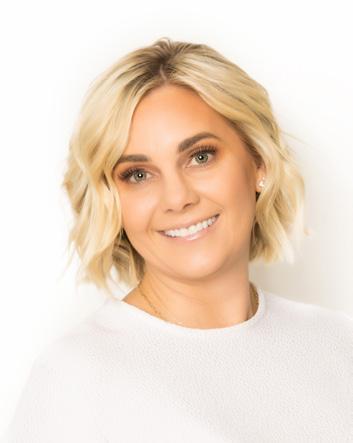
Thank you for attending tonight’s performance! We appreciate your support of the Lubbock Symphony Orchestra. The 2022-2023 “Symphonic Scenes” season promises to be outstanding. We are so excited to experience the wonder of music with you.
Tonight’s performance, and every performance since 1952, has been made possible in part by the Lubbock Symphony Guild. For 70 years, the Guild members have donated their time and resources to keep symphonic music thriving in West Texas.
I hope you enjoy the incredible talent of our remarkable Orchestra and value the educational and cultural contributions they provide to our community. I invite you to consider becoming a member of our Lubbock Symphony Guild. For more information, please visit our website at www.

Front Row Left to Right - Madeline Matthews, Emily Keister, Tatum Brown, Payton Harrison, Katherine White
2nd Row Left to Right - Maggi Underwood, Portia Clary, Madison Bigham, Anna McClendon, Blakely Biggs, Abby Harris
3rd Row Left to Right - Sydney Cranfill, Ava Hounshell, Sydney Lowe, Halle Henthorn, Ashtyn Bartley, Kaitlyn Caswell
Back Row Left to Right - Macy Hamel, Abigail St Clair, Emily Payne, Kathryn Kinnison, Chloe Conover, Elizabeth Kinnison, Natalie Caswell, Campbell Howe Not Pictured -Regan Andrews, Adisyn Elrod, Ellis Fox, MaeAlice White
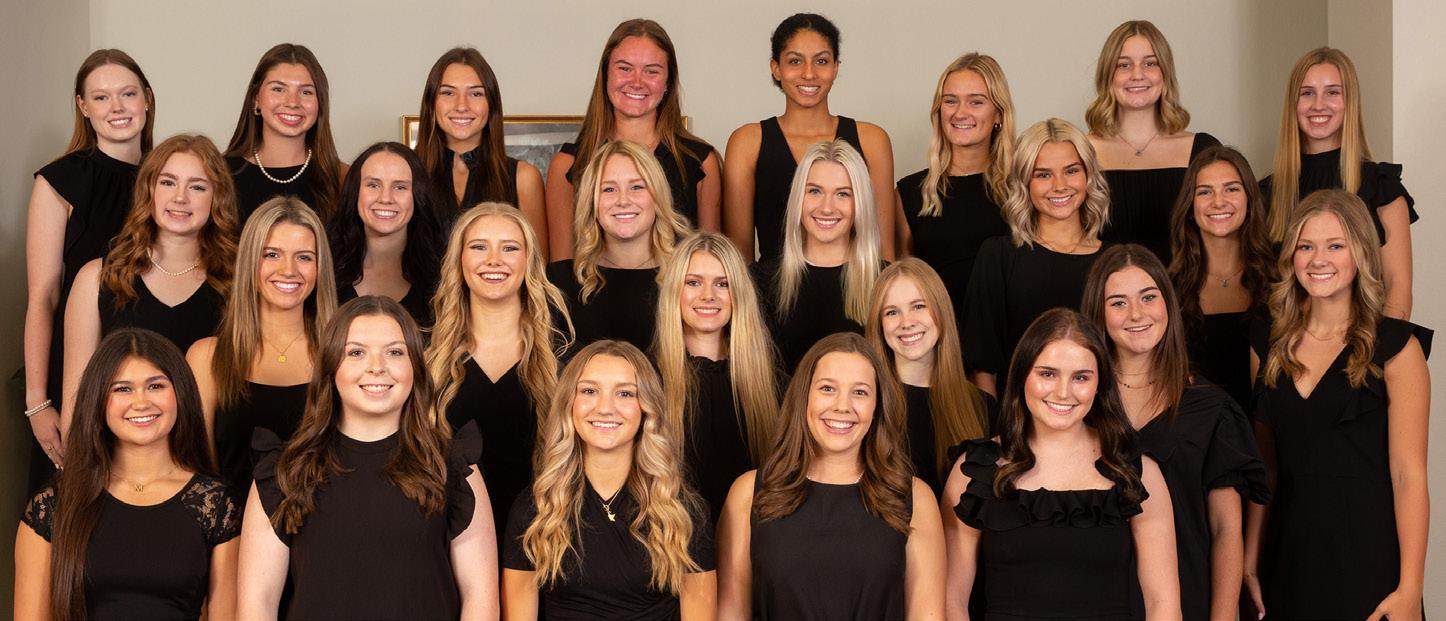 Dallen Ricks,
Mary Glasheen,
Dallen Ricks,
Mary Glasheen,

Front Row Left to Right - Alayna Bayouth, Hannah Feist, Kathryn Kothmann, Addison Burnett, Avery Schilling, Emme Hocker, Anna Everett, Jessica Foley
2nd Row Left to Right - Jillian Jones, Annabelle Bennett, AbiGayle Mills, Ava Campbell, Claudia Tepper, Campbell Carper, Reghan Rose
3rd Row Left to Right - Ava Lansdell, Skylar Tidwell, Emma Feist, Preslie Tarver, Berkley Bird, Olivia Needham, Christiana McCourt, Kathryn Cardelli, Jewel Naegele Back Row Left to Right - Ella Scolaro, Mya Ballou, Lydia Carter, Alexandra Dannemiller, Madison White, Jeye Johnson, Olivia Phillips, Mia Capodagli, Kennedy Venable Not Pictured - Kendall Cathey, Hannah Cooper, Preslee Edwards, Amelia Rodriquez, Emeri Tran
Front Row Left to Right - ALondon Carlisle, Brentley Preston, Tierni Green, Ryann Grissom, Emory McCain, Ella Mendez, Emily Roark
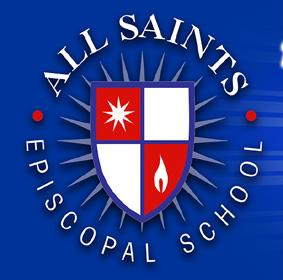
2nd Row Left to Right - Ashlyn Simek, Kamryn Chandler, Claire Ancell, Maya Al-Hmoud, Sadie Callison, Camden McDougal, Jayci Lentz, Addison Kitten, Rylan Belle Raley, Olivia Elliott, Reece Watson, Taylor Harrison, Anne Edwards, Grace Gerwig, Aubrey White
3rd Row Left to Right - Bella Lampe, Brynlee Hogg, Madelyn Caswell, Teema Sharif, Reece Riddle, Haleigh McKee, Raegan Reed, Jencee Thompson, Maya Vermillion, Rylee Rose, Hope Hancock, Ella Murphree, Lauren Casey

4th Row Left to Right - Shiloh Roach, Elizabeth Johnson, Hannah Harvey, Sydney Smothers, Morgan Parker, Blair Belew, Remington King, Zimri Buckley, Olivia Mudd, Emily White, Bradie Smith, Lydia Pesterfield, Riley Newberry
Back Row Left to Right - - Anastyn Greaser, Raegan Lee, Hannah Pharies, Cambelle Fannin, Viviana Ziegner, lndie Williams, Bryleigh Norman, Kristen Mitchell, Ella Grace Bennett, Cora Clifford, Camryn Howe, Mia Chacon, Gabrielle Scherpereel


Not Pictured - Emma Claire Womble


...then there are those of us who help make the music possible.

